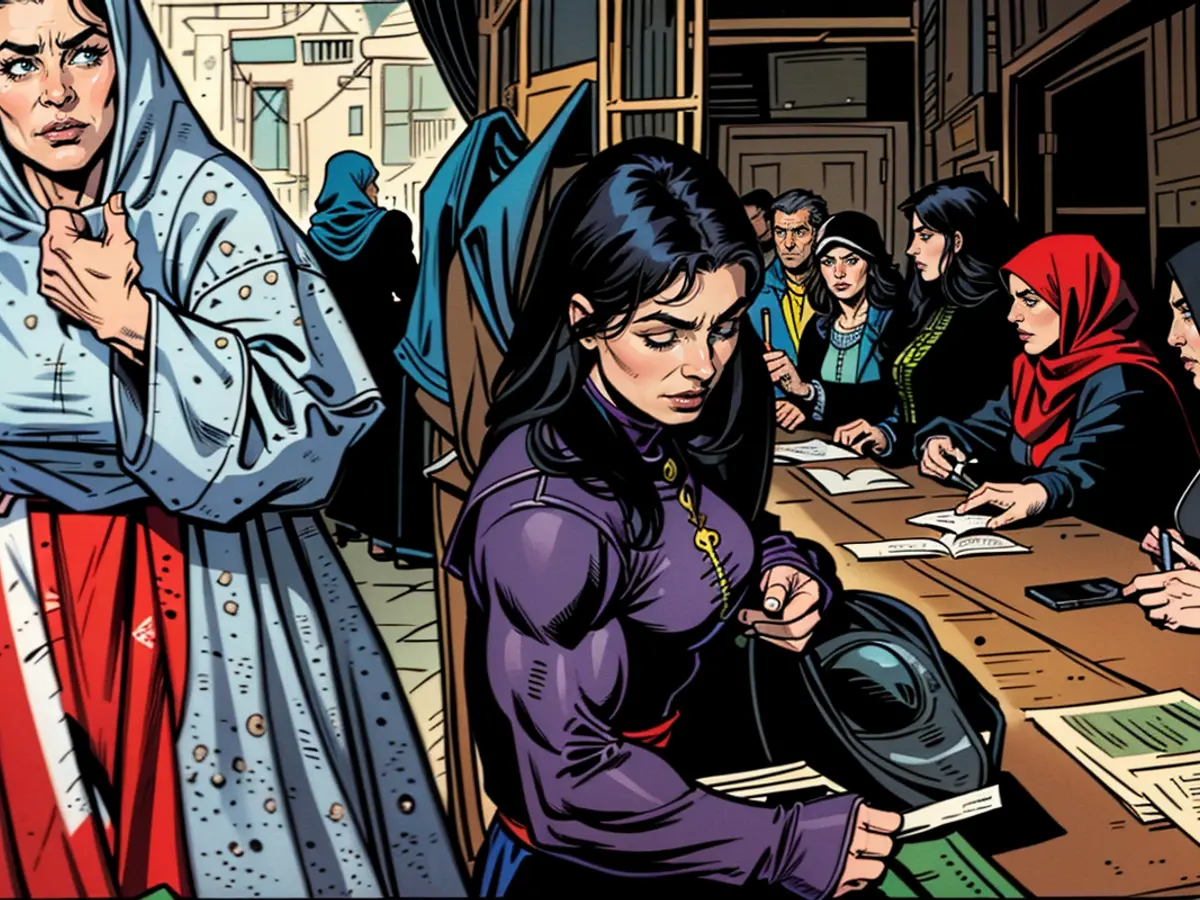Iranians choose future president between three conservatives and one reformer
For a victory, Peseschkian hopes for a significant increase in voter turnout, which was only 49% during the 2021 election. Oppositional Iranian exiles had called for a boycott of the voting in the over 58,000 polling stations because they do not consider it credible.
The 69-year-old Peseschkian - a doctor, parliamentarian, and former health minister - was previously relatively unknown. He is the only reform candidate in this election. The ultra-conservative Guardian Council had approved six candidates, of whom only four remained after the withdrawal of two ultra-conservative candidates on Thursday.
Besides Peseschkian, Mohammad-Bagher Ghalibaf, the conservative parliamentary speaker, Said Jalili, the ultraconservative former nuclear negotiator, and Mostafa Purmohammadi, a cleric, were running for the presidency. Among the supporters of the current government line, Ghalibaf and Jalili were considered favorites.
Jalili, who led the nuclear negotiations with the West between 2007 and 2013, criticized the deal. The agreement brought no benefits to Iran, he said.
"The voting day is a day of joy and happiness for us Iranians," said Ayatollah Ali Khamenei, the spiritual leader of the country, during his vote in Tehran. "We urge our respected people to take the election seriously and participate."
Political power in Iran since the 1979 revolution has been with the spiritual leader of the country. The president's role is to carry out the political guidelines set by Khamenei.
FDP General Secretary Djir-Sarai also criticized the election as a "sham election." "The election is not democratic at all. The candidates were handpicked by the Guardian Council," he told the "World."
"We participate in the election to determine the political fate and leadership of our country," said Mohammad Reza Hadi, a 37-year-old student from Teheran to the AFP news agency.
The originally planned election for 2025 was brought forward due to the death of the previous president, Ebrahim Raisi, in a helicopter crash in May. The new election comes in turbulent times: The escalating Middle East conflict has increased tensions in the region, and the country is struggling with the economic consequences of international sanctions.
Inflation and the devaluation of the Rial against the Dollar could also worry many of the 61 million voters in the country. The USA imposed new sanctions on Thursday in connection with the Iranian nuclear program. The sanctions target shipping companies in the United Arab Emirates that transport Iranian oil.
The USA withdrew from the nuclear deal with the West in 2018. Peseschkian campaigned for the revival of the agreement in the hope of lifting sanctions and economic recovery for the country. "Should we remain enemies with America forever or do we want to solve our problems with the country?" he asked.
Two years after the mass protests following the death of the 22-year-old Mahsa Amini after her arrest by the police, the controversial topic of headcovering for women also played a role in the election campaign. During a TV debate, all candidates distanced themselves from the often violent arrests of women who appeared unveiled in public. "We must not treat Iranian women so cruelly," said Purmohammadi.
The voting was scheduled to end at 18.00 hours (local time; 16.30 hours CET). In previous elections, the duration had often been extended. The official results are expected at the latest on Sunday. Preliminary calculations are expected on Saturday.
If no candidate reaches an absolute majority, there will be a second round of voting on July 5. However, this has only happened once before in the 45-year history of the Islamic Republic, during the 2005 election.
- In Tehran, Ayatollah Ali Khamenei, the spiritual leader of Iran, encouraged high voter turnout for the presidential election, expressing joy and happiness for the Iranian people.
- Among the six approved candidates by the ultra-conservative Guardian Council, Said Jalili, the former nuclear negotiator, criticized the nuclear deal with the West, stating it brought no benefits to Iran.
- During the election campaign, the controversial topic of headcovering for women in public was discussed, with all candidates denouncing the violent arrests of women who did not adhere to the dress code.
- Peseschkian, the only reform candidate in the election, advocated for reviving the nuclear deal to potentially lift sanctions and promote economic recovery in Iran.
- In the 2021 election, voter turnout was low at 49%, causing some Iranian exiles to call for a boycott of the voting in over 58,000 polling stations.
- Mohammad-Bagher Ghalibaf and Said Jalili, supporters of the current government line, were considered favorites for the presidency in the upcoming election.
- The current election in Iran, which was brought forward following the death of former president Ebrahim Raisi, takes place amidst escalating Middle East tensions, international sanctions, and economic struggles, with inflated prices and a devalued Rial against the Dollar being major concerns for many Iranian voters.







